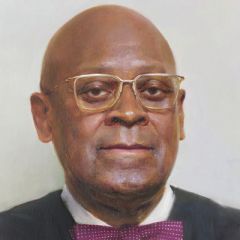Still looking for holiday gift ideas for colleagues? Check out the Illinois Bar Journal’s “Holiday Gift Guide 2025,” written by Pointers From Practice HQ columnists Jeffrey S. Krause and Jeffrey S. Schoenberger. The list includes productivity products, apps, gadgets, and other items that will bring value, efficiency, and perhaps even a bit of fun to your working day.
Illinois Bar Journal
-
December 15, 2025 | Practice News

-
December 8, 2025 | Practice News

The need to obtain school student records may arise in everything from dissolution of marriage proceedings to general civil litigation and administrative proceedings, such as grievance proceedings involving school staff, observes Christian Ketter in his December Illinois Bar Journal article, “What’s in the File?” But Ketter notes the Illinois School Student Records Act ensures that a student’s individually identifiable information remains insulated from those contexts.
-
December 1, 2025 | Practice News

New Illinois Supreme Court Chief Justice P. Scott Neville, Jr., grew up in the Chicago Bronzeville neighborhood under challenging circumstances. As recounted in “Ready To Serve,” the Illinois Bar Journal’s December profile of the chief justice, those years “were challenging for his family and especially his mother, a schoolteacher,” Chief Justice Neville says. “But I maintain that those very difficult times made me the kind of person I am. I often say I grew up on the rough side of the mountain,” he says. “But it is pressure that turns coal into diamonds.
-
November 24, 2025 | Practice News

“Lawyers often regard procedural history as a formality and as something to endure, like the seat-belt announcement on an airplane,” writes Justice Michael B.
-
November 18, 2025 | Practice News

The November issue of the Illinois Bar Journal features two articles concerning gender violence and sexual abuse. The first is Whitney L. Barr’s “Gender Violence in the Workplace” and provides an in-depth discussion of the expanded protections included in recent amendments to the Gender Violence Act. The second is “Stand and Deliver” by Peter S. Stamatis, Steven S.
-
November 10, 2025 | Practice News

In his November 2025 Illinois Bar Journal article, “Where Civil Law Ends & Criminal Begins,” Vadim A. Glozman calls attention to a series of U.S. Supreme Court decisions drawing lines between bad or faulty business practices and criminal activity. What starts as a billing issue, regulatory inquiry, or business dispute, Glozman shows, can quickly escalate into something far more serious. A client forwards a grand jury subpoena. Days later, they’re calling about a target letter.
-
November 3, 2025 | Practice News

In 2024, romance scams cost Americans $697 million, with those targeting people over 60 accounting for $277 million of that, according to research presented at a recent ISBA CLE program titled, “Don’t Let a Romance Scammer Steal Your Client’s Heart and Business.” The program’s presenters are featured in the Illinois Bar Journal’s November cover story, “Scams of the Heart,” which describes the nature of various scams, why they are so ensnaring, and what attorneys of elderly clients an
-
October 27, 2025 | Practice News

In his October Illinois Bar Journal Ethics column, ISBA General Counsel Charles J. Northrup addresses the ethical nuance of exercising peremptory challenges when they are lawful under substantive law but could be considered violative of ABA Model Rule 8.4(g) and its Illinois equivalent. Northrup shows how ABA Formal Opinion 517 promotes clarity for those charged with complying these rules.
-
October 20, 2025 | Practice News

In his October Illinois Bar Journal article, “Home and Away,” Jeffrey Friedman notes how the U.S. Supreme Court’s decision in Monasky v. Taglieri is a major interpretive shift for determining a child’s habitual residence, moving from the previous standard based on parental intent and duration-of-stay to a fact-intensive examination of the child’s societal, community, and familial integration.
-
October 13, 2025 | Practice News

It is inevitable that you will encounter families that are planning for a loved one with a developmental disability, states Katie Clancy in her October Illinois Bar Journal article, “The Special Needs Client.” But how well can you identify whether a client has a family member with a disability? Do you know the appropriate language to use when talking about disabilities?

